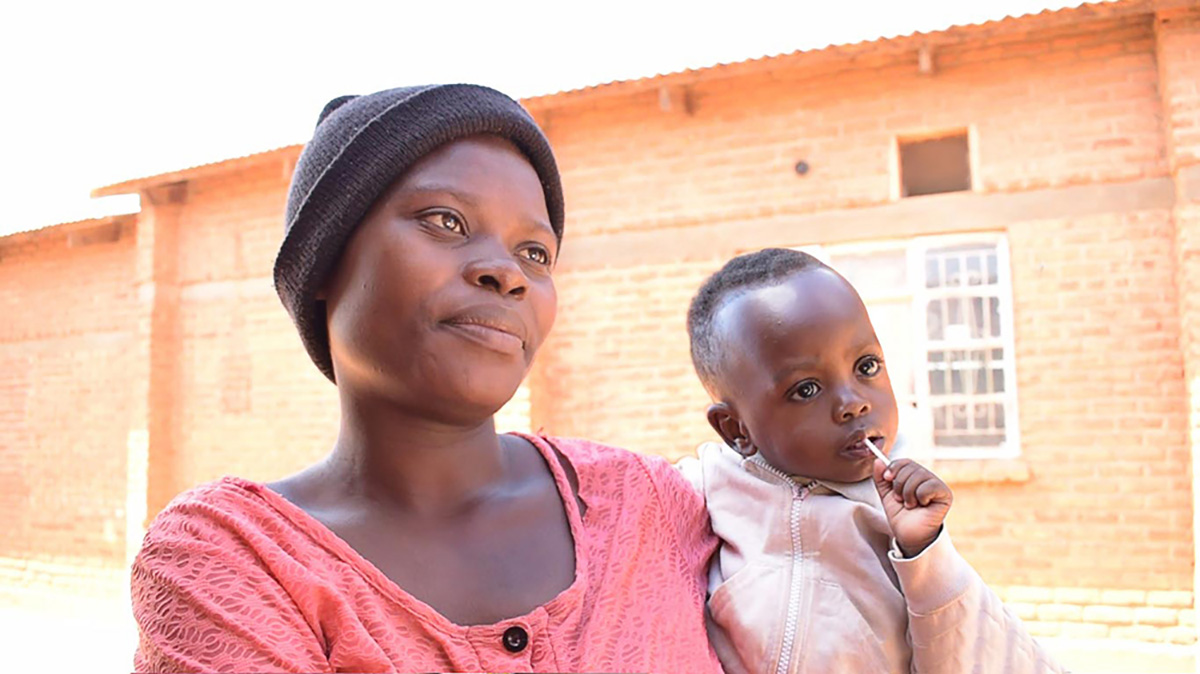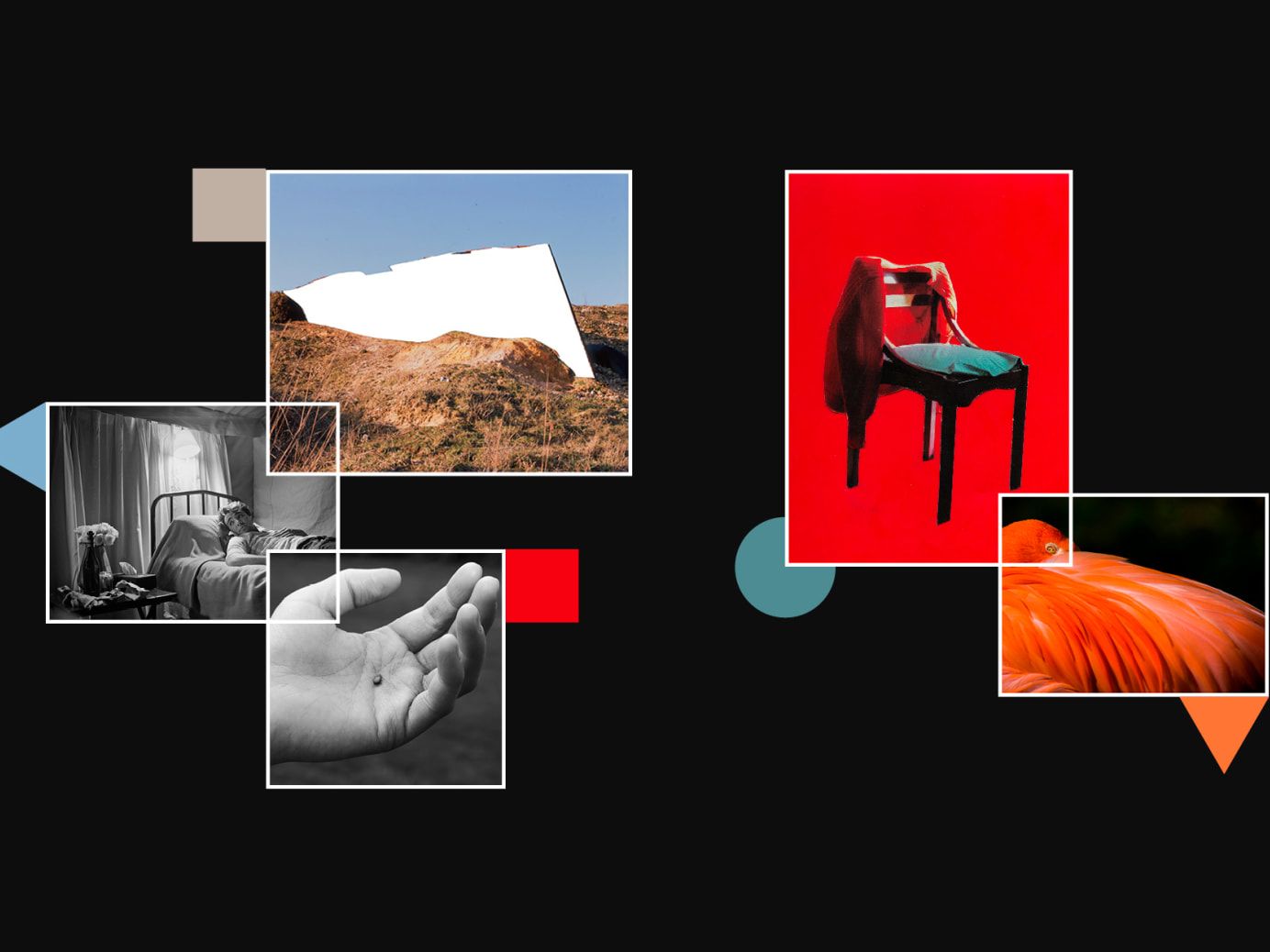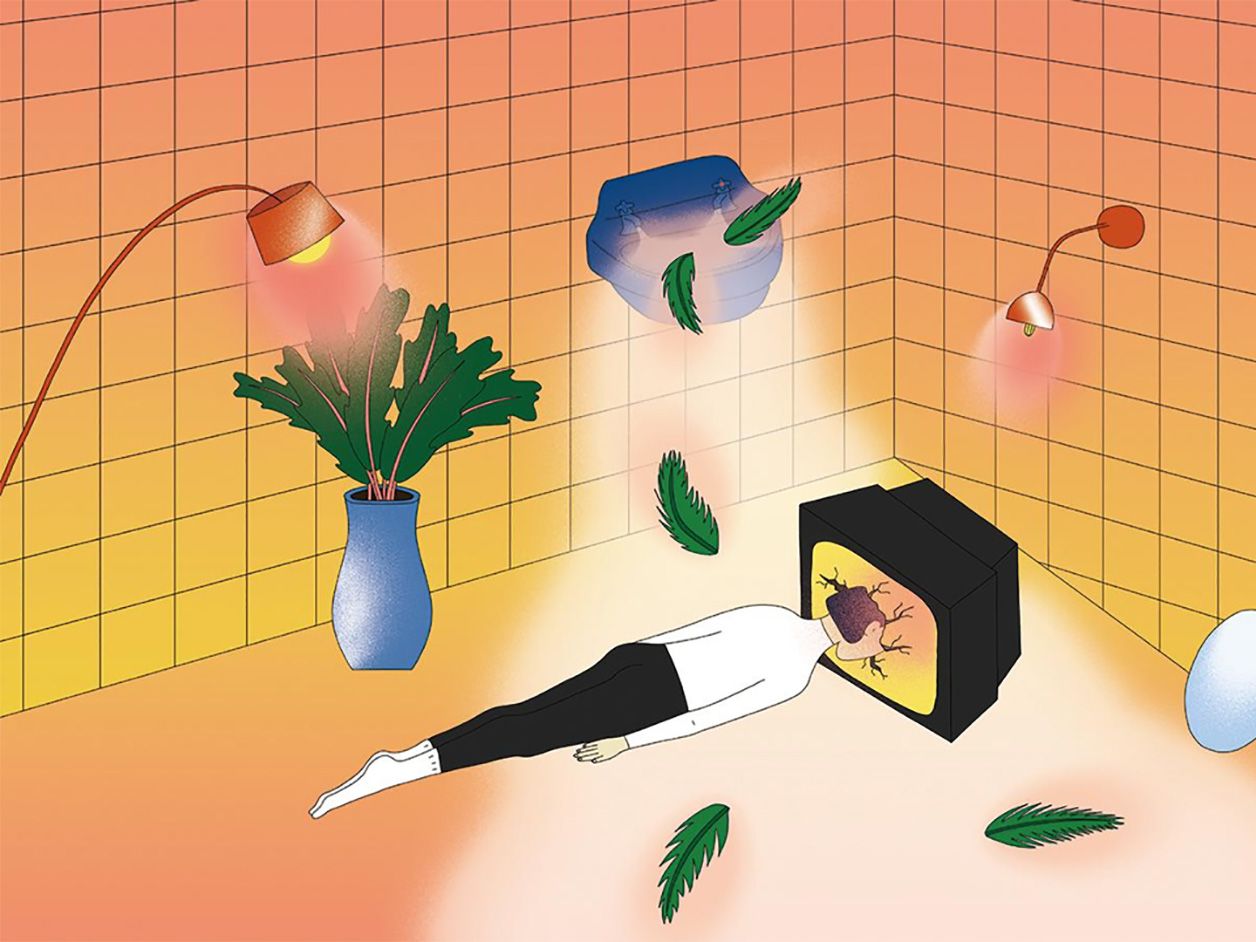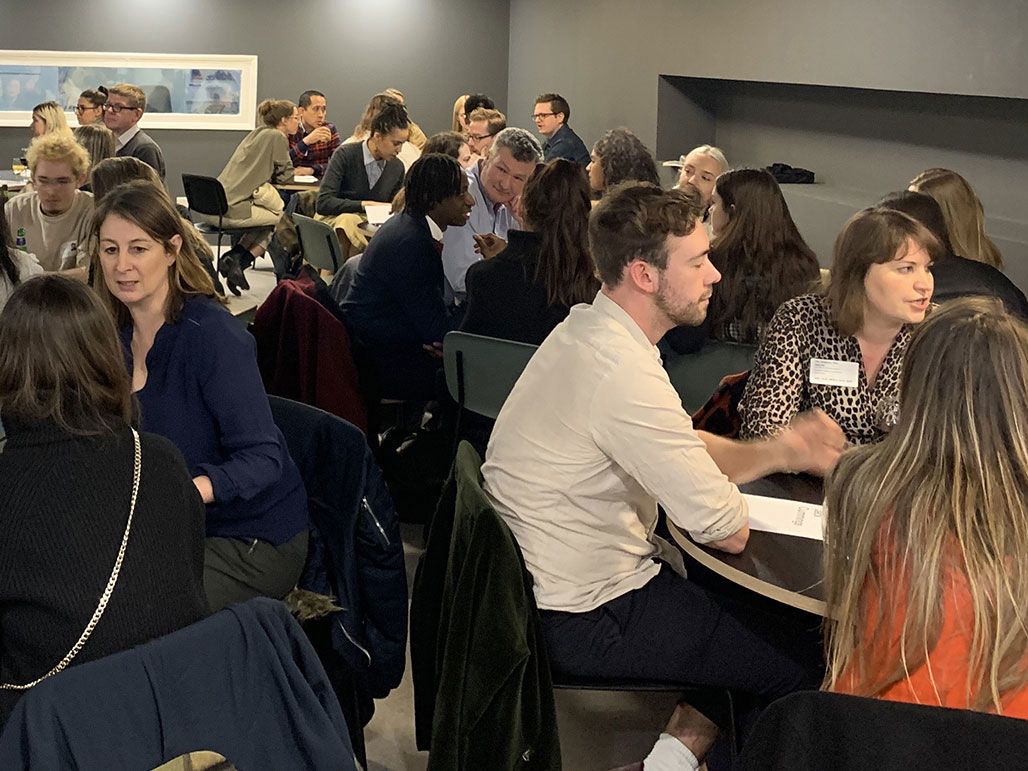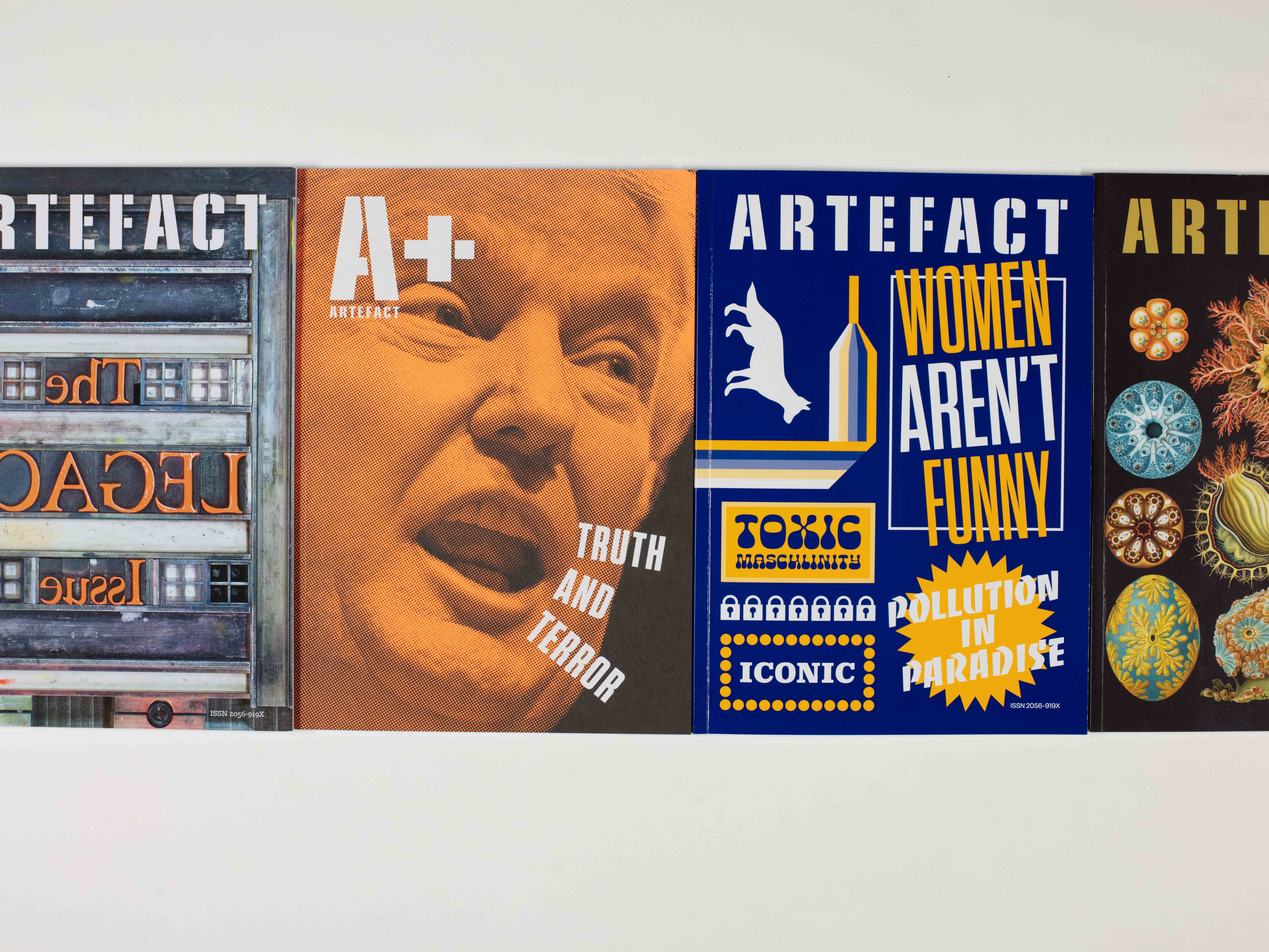The Coronavirus pandemic may have transformed our global landscape over the past 18 months, but its impact has varied significantly between individual nations. As governments have scrambled to develop robust responses to Covid-19, their decisions have affected a range of demographics and socio-cultural structures in marked, tangible ways – many of which remain inadequately explored and articulated.
While media coverage tends to have focused on people living in mainstream society, the voices of those most marginalised have often been lost. In a bid to highlight some of these experiences, BA (Hons) Journalism student Hanna Mödder worked with 3 multimedia journalists in Malawi - Godeline Ndonji, Leopold Kalala Heritier and Ivanovitch Ingabire - to explore the realities of life in Dzaleka Refugee Camp during a time of global crisis.
Their resulting feature, I’m afraid of the disease but mostly of dying from hunger, aimed to capture ‘the grassroots story of how the global pandemic is affecting those living on the fringes’ through conversations with people already battling extraordinary circumstances, displaced in a country shaken by growing obstacles to both economic exports and the import of international aid.
Facilitated by the Refugee Journalism Project (RJP), a leading initiative based at London College of Communication (LCC) which supports refugee and exiled journalists to re-start their careers in the UK, Hanna was connected to colleagues who are themselves living in Dzaleka and were able to capture interviews with fellow refugees. Working across research, audio-visual media and photography, Godeline, Leopold and Ivanovitch sourced stories from individuals such as mothers, shopkeepers and teachers on the capacity for Covid-19 to make the existing difficulties of everyday life even more challenging.
With the editorial support of Project Director, Vivienne Francis, and Project Coordinator, Veronica Otero, Hanna was able to work with content sourced by the Malawian journalists, bringing together key threads from a range of primary and secondary resources before writing and publishing the final feature. In April, she and her team were named as one of the Finalists at the 2021 Amnesty Media Awards, which aim to celebrate excellence in human rights journalism, and to applaud both the courage and determination of those determined to report on vital world issues.
We caught up with Hanna to discuss her creative practice as an emerging journalist, her experiences of working with international colleagues and the Refugee Journalism Project, and the importance of ‘finding the extraordinary in the ordinary’.

Have you always been interested in journalism, or is this an area you’ve moved towards over time?
I’ve always been interested in working in the media, and with visual media especially, but I’m also just really interested in working creatively across lots of different fields. I like getting to know people, and I really like getting an insight into people’s stories – as a very curious person, I appreciate the fact that journalism allows you to ask so many questions.
It’s also a great area to specialise in as the media is something that influences us so much, and having a good understanding of how it does so is incredibly useful for every field. I felt that studying the subject at degree level would enable me to explore all of these aspects in my future career.
In terms of your creative practice, what are you most interested in exploring through your work?
I generally specialise in audio-visual media: I really love producing podcasts and documentaries. Really, I love doing everything that’s in front of a camera or a mic.
My dream job would be to host a human-interest talk show, because I enjoy the human side of stories, and acting as facilitator to help audiences find the extraordinary in the ordinary; to show that everybody has a story and everybody has something that makes them special, interesting and individual.
Why did you decide to apply to BA (Hons) Journalism at LCC?
I first went to a summer school in Fashion Journalism at Central St Martins, but I wanted to venture out a little bit more because I thought that it was quite a narrow field. I’d already experienced the teaching style at UAL, and I just thought: ‘Okay. This might be a great place to study journalism and anything artistic or media-related’.

How did you first get involved in the Refugee Journalism Project?
Essentially, the Refugee Journalism Project was one of the specific factors that pulled me towards LCC.
I volunteered at a refugee camp in Germany around 2015/16 when the recent ‘crisis’ unfolded – there was a real wave of people seeking refuge from overseas. As society made a shift to the right, and people grew afraid - and more racist, really - I decided that I had to take action by becoming a volunteer.
I got close to a couple of families there, and the experience made me question many things. I was very emotionally involved, and I was very angry at the injustice and the hardship that these people experienced after they’d supposedly made it to safety. There wasn’t enough representation of their stories.
When Vivienne [Francis] sent out an advert looking for a digital journalist to be on the RJP team, I thought that this could be my opportunity to get involved with the Project. I worked with them for a while – I wrote their newsletter, I participated in workshops, and we had a look at setting up Instagram and Twitter accounts. Most importantly, I was able to work with some of the RJP's contacts to publish our feature, which was nominated for the Amnesty Media Awards.
What have been some of the key experiences during your time on the Project?
I have to say that Vivienne and Veronica [Otero] who work on the project are amazing. They invest so much empathy, so much of their heart, so much of their emotional availability. I can only imagine what it’s like to have worked on it over several years, and to be involved first-hand with the biographies of the participants who have fled from political persecution and threats of death - existential threats that many of us, collectively, can’t even begin to relate to.
When I was writing our feature, I found the experience really hard at times. Funnily enough, Malawi is in the exact same time zone as Germany, where I was at the time. I was sitting at my parents’ dinner table having a conference call with our contacts over there, and just knew that their lived reality was incredibly different to mine.
Experiencing something like this first-hand and transcribing the interviews was challenging, but at the same time, I can’t complain or let it affect me too much. The people who deserve all the empathy and solidarity are the people who are forced to live under conditions that can only be considered inhuman. It really made me very angry, and it really made me very sad.
Interview with Raphael M. Ndabaga | Godeline Ndonji
What inspired you to write your feature?
I think Vivienne and I were on a conference call, and we had a discussion about aid likely being diverted to fight Covid, and how it would affect countries that are really dependent on the international infrastructure. I don’t remember who came up with the idea of writing a feature about it, but it happened really quickly, actually. We dove in head-first.
Vivienne mentioned that she had a couple of contacts in Malawi, and then we had a couple of kick-off meetings about it – we arranged conference calls and determined the questions that we’d like to get answered. What was really important for us was to develop a Humans of New York-style feature where we could get an insight into the biographies behind the names; to let people talk who wouldn’t usually have a platform in the media, but who are also so often talked about.
For us, it was really important to set out individual stories and emotions, and to allow readers to realise that everyone’s struggles aren’t that different. We featured a woman worrying about healthcare for her child, for example – and I can imagine that would be a similar worry for a mum in the UK. There was also a student who was really desperate to go back to school because he was afraid of losing his progress, which is something that many people over here can also relate to.
What did you aim to achieve through your feature?
While on a superficial level, everyone’s living realities are different, we wanted to get out of the anonymity of ‘The Refugees’. It’s an umbrella term used way too often, and by countries with protectionist tendencies who need to justify not granting people asylum. If you look at the situation on the basis of individual cases, anyone would understand that it’s inhumane to refuse someone entry into a country when they’ve fled from conditions that are so terrible and traumatising.
While I wouldn’t consider myself a human rights journalist, I think media professionals have a responsibility to tackle injustice wherever we see it and to get involved – to stand up for human rights. The most fundamental human right is the right to dignity and to live, and that’s taken away from people every single day.
It’s important for us to talk about the facts and to offer a platform where audiences can empathise with those who stories aren’t told enough. I feel that’s what we did through our feature.
Why is generating a sense of empathy so central to successful journalistic work?
There’s only one way that we can achieve change, really, and that’s as a community. It’s terrible that we have to do this and it isn’t just a given, but unless people have actually been in touch with refugees, they need to become familiar with the fact that every single person has to be looked at as an individual. Every single person who comes to the UK to seek asylum, who puts their life on the line many times, has a history just like we do. We’d also be looking for protection and safety if we were somewhere where our lives were in danger, or our children were in danger, or if we felt like a country had nothing to offer to us; if we felt like we’d live a life in starvation, or in poverty.
There are many myths around refugees, and so many people have the idea of ‘The Refugees’, ‘The Migrants’, as a kind of ghost: a group in their heads that they can just blame everything on. We as the media need to move away from that, and make it more visible that refugees are individuals, and just like the rest of us.
While the media can’t affect change in the same way as policymakers - especially in the entertainment and human interest sectors that I’m interested in – we can create lots of empathy. We can create connections to people who are sensationalised, and to share their hopes and their dreams, because then more people can realise that we’re all the same.

What does the recognition from the Amnesty Media Awards mean to you?
Honestly, I wouldn’t say being recognised by the Awards was important for me as an individual. Ideally, you don’t do things for recognition: you do them because you’d like to do them.
Of course, being nominated was nice because it shows that the idea we had for the feature was good, and that it was deemed relevant; however, the best thing was the fact that it meant our Malawian contacts could be featured in the programme. If anyone from the Jury or from the industry audience ever needed footage or quotes from Malawi, they were able to get in touch with 3 incredible people with fantastic perspectives who are based in the country itself.
The Awards helped to put our journalistic colleagues on a different stage, and I know that some of them were offered subsequent work from taking part in the feature. That was enough for me – to know that it led somewhere.
What were the highlights of the experience for you in terms of producing the article?
I’m quite a visual person, so I had lots of fun researching, and thinking: ‘Okay, what's this subject all about? What are the facts and the comparisons that I could introduce?’
It was incredibly interesting to look through all of the material. We gathered so much, and what you read in the final article is really just a selection. I transcribed everyone’s individual stories, and looked for the quotes to pull – it was super interesting and captivating to hear about other people’s lives.
I also enjoyed the whole editing process. Vivienne and Veronica were my editors, and they were so helpful. Writing isn’t my preferred medium as I’m much more audio-visual, but they helped me learn a lot, and I think I really improved. And just working with a team of people who are so driven and interested was really cool.

What have you most enjoyed about your time at LCC so far?
While my experience as a student has been tough because of all the challenges posed by Covid, I’d definitely say my work with the Refugee Journalism Project has been one of the highlights from my time at the College. I’ve also really enjoyed recording in the Journalism Radio Studios, and being out with the camera – just being able to work in a way that’s really hands-on and creative.
I’ve also loved being taught by our lecturers, especially for the more social sciences- and humanities-based topics. They’ve been incredible, and we've been encouraged to research the broader landscape of journalism, and to explore the fields that we’re interested in.
What advice would you give to students who might be interested in pursuing journalism?
I’m still finding my way around the field of media myself as I’m so early in my career, but in general, I think I’d probably say that you should make sure your sources are water-tight. That’s a big one. In our day and age, I think it’s super-important to be accurate, to make people relate to the point that you’re making, and to let your readers think for themselves. You should make sure that what you record is as accurate, nuanced and as clear as it needs to be in order to catch people’s interest.
I think a lot of my advice would come back to empathy. It would be great if we could report on stories without using the same narratives over and over again, allowing a real glimpse into what life is actually like rather than putting people into certain storylines. You should do stuff that you can back-up emotionally, and with good conscience. That’s how I approach things myself. I just do what I’m interested in. Be honest, non-judgmental, and curious on an eye-to-eye level, and don’t be afraid of being confrontational when you have to be. And as long as you work with accuracy in mind, and with good faith, you shouldn’t be afraid of criticism.
I’d also suggest that you take your time as you explore who you are and what you’re interested in. Don’t let anybody tell you that a journalist is this or a journalist is that. It’s actually journalistic expertise that counts - not the followers you have on Instagram, or the Twitter presence you have, or your glossy picture on LinkedIn. It comes down to telling stories that matter, and bringing content that draws in your audience and gets them involved on both a cognitive and emotional level.
Related links:
- Read Hanna's final feature in full, and find out more about the Amnesty Media Awards 2021.
- Learn more about the Refugee Journalism Project.
- Explore BA (Hons) Journalism at LCC.
